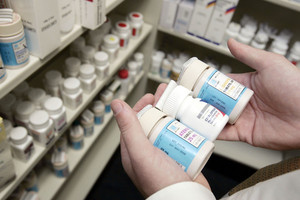Canada’s federal department responsible for health, Health Canada, has issued two new draft guidance documents for public consultation as part of the agency’s effort to clarify the eligibility criteria for its abbreviated new drug submission (ANDS) pathway for generics.
Health Canada issues draft guidance on generics labelling and equivalence
Home/Guidelines
|
Posted 03/05/2019
 0
Post your comment
0
Post your comment

The draft guidelines, issued on 8 April 2019, provide guidance to sponsors to enable them to accurately label and provide evidence of ‘pharmaceutical equivalence’ for ANDSs.
Identifying and Labelling Medicinal Ingredients in New Drug Products
Date: 8 April 2019
https://www.canada.ca/en/health-canada/services/drugs-health-products/public-involvement-consultations/drug-products/consultation-profile-draft-generic-drug-equivalence/document-2.html
Generic Drug Equivalence: Medicinal Ingredients
Date: 8 April 2019
https://www.canada.ca/en/health-canada/services/drugs-health-products/public-involvement-consultations/drug-products/consultation-profile-draft-generic-drug-equivalence/document-1.html
The two documents detail how the agency intends to implement recently proposed changes to the country’s Patented Medicines Regulations, which were published in the Canada Gazette, Part I. These changes are being made to try to increase access to generics and make labelling more consistent and transparent. Canadians in the past have often paid more for generics than many other developed countries [1], which is driving the changes to the country’s regulations.
In the draft guidance on labelling, Health Canada explains how medicinal ingredients for new and generic drugs should be labelled. The agency says that ‘the labelling should reflect the therapeutically active component and medicinal ingredient most likely present in the dosage form (if different from the therapeutically active component)’.
It defines the ‘therapeutically active component’ as ‘a medicinal ingredient, excluding those appended portions, if any, that cause the medicinal ingredient to be a salt, hydrate or solvate’.
In the draft guidance on generics equivalence, Health Canada explains how sponsors can demonstrate that their drug is therapeutically equivalent to its reference product when there are differences in the medicinal ingredient.
It defines the ‘pharmaceutical equivalent’ as ‘a new drug that, in comparison with another drug, contains identical amounts of the identical therapeutically active components, in comparable dosage forms, but that does not necessarily contain the same non-medicinal ingredients’.
The definition is being changed to allow for generics with certain differences in the medicinal ingredient to still be eligible for filing under the ANDS pathway. These differences include generics with active ingredients that are in a different hydrated or solvated form, different polymorphic form or different salt form. It does not, however, include different esters, different complexes, different clathrates and different isomers or mixtures with different proportions of isomers. In these circumstances, submissions must be filed via the new drug submission (NDS) pathway.
Health Canada stated that ‘the proposed regulations and guidance document are aimed at providing more clarity, consistency, transparency and predictability for manufacturers in filing drug submissions’.
Related article
Generics still cost more in Canada, but prices decreasing
Reference
1. GaBI Online - Generics and Biosimilars Initiative. Canada’s generics are too expensive [www.gabionline.net]. Mol, Belgium: Pro Pharma Communications International; [cited 2019 May 3]. Available from: www.gabionline.net/Generics/Research/Canada-s-generics-are-too-expensive
Permission granted to reproduce for personal and non-commercial use only. All other reproduction, copy or reprinting of all or part of any ‘Content’ found on this website is strictly prohibited without the prior consent of the publisher. Contact the publisher to obtain permission before redistributing.
Copyright – Unless otherwise stated all contents of this website are © 2019 Pro Pharma Communications International. All Rights Reserved.
Source: Health Canada
Policies & Legislation
WHO to remove animal tests and establish 17 reference standards for biologicals
Most viewed articles
The best selling biotechnology drugs of 2008: the next biosimilars targets
Global biosimilars guideline development – EGA’s perspective
Related content
US guidance to remove biosimilar comparative efficacy studies
New guidance for biologicals in Pakistan and Hong Kong’s independent drug regulatory authority
Canada poised to remove requirement for Phase III trials for biosimilars
European position paper on AI in medicinal product lifecycle
New guidance for biologicals in Pakistan and Hong Kong’s independent drug regulatory authority

Home/Guidelines Posted 20/10/2025
Canada poised to remove requirement for Phase III trials for biosimilars

Home/Guidelines Posted 22/07/2025
The best selling biotechnology drugs of 2008: the next biosimilars targets








Post your comment